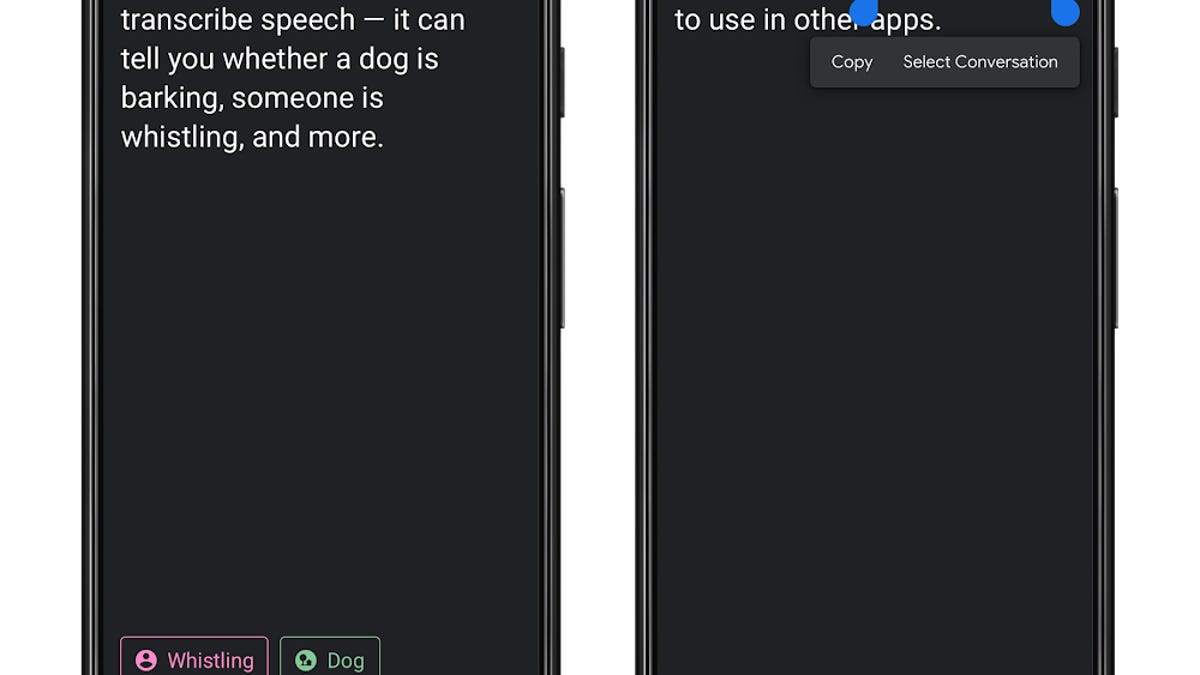Google’s Live Transcribe will now show when dogs are barking
The app for the hearing impaired will also transcribe the sounds of applause, laughter, music, whistling, door-knocks and passing cars.

Google has added sound events to Live Transcribe.
Google has added sound events to its Live Transcribe app, which it said will help the hearing impaired become more immersed in the audio world.
Live Transcribe will now transcribe not only speech, but also sounds like dogs barking, door-knocks, applause, laughter, music, whistling and passing cars, thanks to an update of Google's machine learning and speech recognition technology.
The app was launched in February alongside Sound Amplifier, with both aimed at making it easier for the hearing impaired to communicate.
Live Transcribe generates captions on the screen by capturing speech through a smartphone's mic.
"Technology is about inclusion and empowering people of all abilities," Eve Andersson, who runs Google's machine learning fairness and accessibility engineering team, said in January.
The app will also now allow users to copy and save transcripts, which will be stored locally on an Android phone for three days, Google said Thursday in a blog post announcing the changes.
Another accessibility addition is an increase in the size of the audio visualization indicator.
The updates will be rolled out in June.
Google on Wednesday also announced Translatotron, an "experimental new system" that it says will translate speech directly into speech, removing the need for any text.
This will mean faster translation speed and less compounding errors, according to Google.

